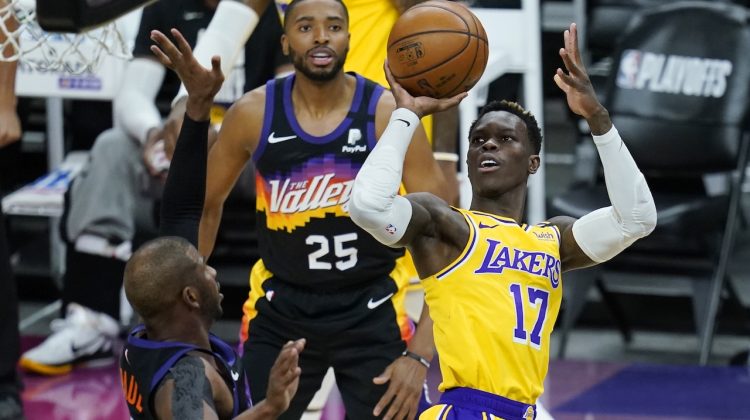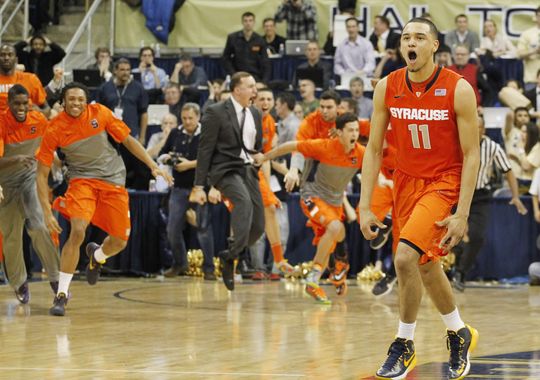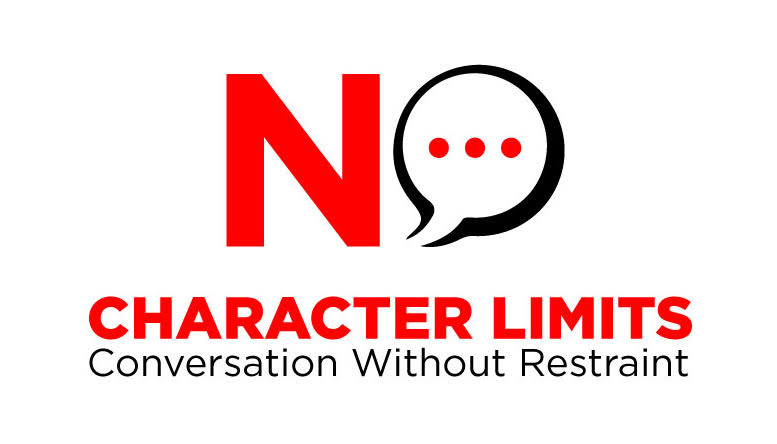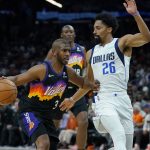Despite winning Game 1 in a series that favors the seventh-seeded Lakers, the Phoenix Suns still had plenty of questions as the teams met again on the court Tuesday night.
Most of those questions swirled around what point guard Chris Paul could and couldn’t do after a suffering from a “stinger” in his right shoulder in Game 1. He was noticeably limited the rest of the way on Sunday, and while he still was able to make some plays in Game 2, he didn’t quite look the MVP quality star on the court.
For much of the game, it felt like the score didn’t reflect how badly the Lakers were beating up the Suns. In the fourth quarter, it seemed like the score didn’t quite reveal how close the Suns came to pulling off a comeback win when the clock hit zero and the score favored the Lakers 109-102.
While Paul did not play for much of the fourth quarter, it was in fact Cameron Payne who shouldered that load, going from a Game 1 ejection to fueling a Game 2 comeback late in the fourth quarter. The point guard came off the bench and scored 19 points with eight of them coming in the final quarter.
wow i didn’t even know that cameron payne is my favorite basketball player but here we are
— Shea Serrano (@SheaSerrano) May 26, 2021
The Suns may need that same level of production out of Payne after Paul played 20 minutes and scored just six points. He never seemed quite in rhythm due to that shoulder injury, and head coach Monty Williams made the decision to pull his All-Star late in the game because of the injury.
Despite Payne’s spark, the Lakers out-muscled the Suns with a 19-12 run in the final five minutes on their way to the win.
Four of the the Lakers’ five starters were easily in double figures with point guard Dennis Shroeder leading the way. LeBron James and Anthony Davis combined for 57 points, 16 assists and 14 rebounds and Andre Drummond was a steady presence in the paint, tallying 15 and 12 rebounds.
"I wanted to make sure I made a statement this game."@AntDavis23 (34 PTS, 24 in 2nd half of @Lakers win) on his Game 2 mentality.. Game 3 is Thursday at 10 PM ET on TNT. #NBAPlayoffs pic.twitter.com/7u1PRR37x3
— NBA (@NBA) May 26, 2021
This was to be expected from Los Angeles though. This is not your typical 7-seed. The Lakers have two of the best players on the planet in their starting lineup and a supporting cast handpicked to complement their two ultra-stars.
The Suns, who came in to the postseason with the best win percentage against playoff teams this year, were not able to find that rhythm and take full advantage to overtake the Lakers. Phoenix sustained multiple Los Angeles runs to keep it close – at one point taking the lead in the fourth quarter – but there were golden opportunities that the team could not take advantage of.
The Lakers also found a way to change the way the Suns scored. In Game 1, the Suns scored 21 second chance points. On Tuesday, they tallied nine in that area. Phoenix was able to run on Sunday, scoring 16 fast break points but were outscored 15-4 in Game 2 in that stat. o
The Suns were hampered without their starting point guard at full strength. Jae Crowder found himself in foul trouble early, and Mikal Bridges struggled as well. In Game 1, Bridges logged 40 minutes and scored 10 points, posting a plus-minus of +9. Tuesday, Bridges scored six at a plus-minus of -13 on 26 minutes.
While the Suns will have to collectively compensate for any limitation Paul may have moving forward, Deandre Ayton is continuing to prove he can be a viable consistent and efficient option on the floor. In two games, the center has logged 42 points on 21/24 shots 26 rebounds and five assists in 78 minutes.
The Suns came into Game 2 with questions, and it feels like even more sprouted up as the series continues in Los Angeles on Thursday.





